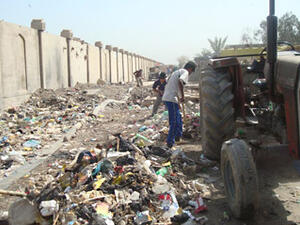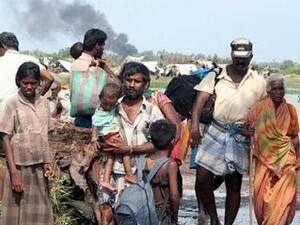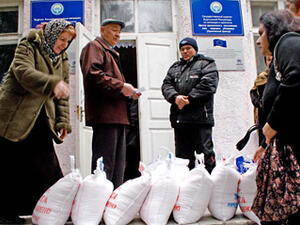$10 million needed to help Sri Lankans go home, says UNHCR
$10 million needed to help Sri Lankans go home, says UNHCR
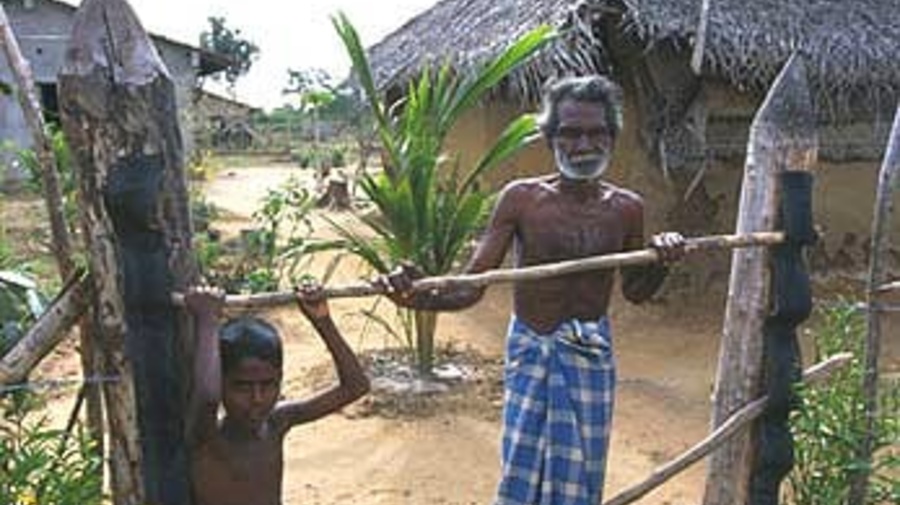
Sri Lankans are returning to Vavuniya in the north after 20 years of civil war.
GENEVA, October 11 (UNHCR) - The UN refugee agency today appealed for $10 million to help Sri Lankans returning home as a cease-fire takes hold following two decades of civil war. The funds will be used to provide returnees with assistance items and ensure minor infrastructural repairs in some war-ravaged communities.
Twenty years of bloody conflict in Sri Lanka have displaced more than 800,000 people within the country, with more than 64,000 refugees in camps in southern India.
Thanks to new confidence following a cease-fire agreement brokered by the Norwegian government in February this year and the start of peace talks between the Sri Lankan government and the Liberation Tigers of Tamil Eelam in September, more than 180,000 internally displaced persons (IDPs) have already gone home. Another 1,000 refugees have returned spontaneously from India since early this year.
"Sri Lankans are voting with their feet for peace and stability. Our aid programmes will consolidate the gains made at the negotiating table by helping people to rebuild their communities and their lives," said the UN High Commissioner for Refugees, Ruud Lubbers. "The international community must meet the needs of the thousands of Sri Lankans already streaming home and the many more people who look ready to follow."
UNHCR has been working in Sri Lanka for more than 15 years, providing protection and assistance for 800,000 IDPs at the request of the government and under a mandate from the UN Secretary-General.
In July this year, the UN and the Sri Lankan government agreed that UNHCR would be the lead UN agency providing protection, emergency shelter and assistance items to returnees. The refugee agency's expanded field presence now includes three field offices on the island - in Jaffna, Vavuniya and Colombo. It also has five satellite offices in areas affected by the conflict that work to monitor returns and provide protection and assistance.
UNHCR's $10-million appeal, covering the period from October 2002 through December 2003, will pay for assistance items for up to 60,000 families, including plastic tarpaulins, kitchen and cooking sets, sleeping mats, towels, soap, hygiene items and jerry cans.
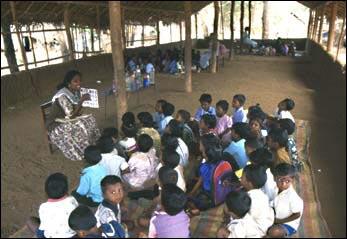
To help returnees reintegrate, longer-term assistance will be needed, like for this school in Madhu.
The refugee agency will also fund basic infrastructural repairs in returnee areas - rehabilitating access roads, water and sanitation, health services, and creating income-generating activities.
"Returnee and reintegration assistance alone won't help Sri Lanka erase the damage wrought by years of conflict and economic stagnation," said Lubbers. "UNHCR is working with the World Bank, the UN Development Programme, the Asian Development Bank and other partners to ensure that agencies provide adequate rehabilitation and reconstruction assistance so that Sri Lankans can build upon their new-found peace."
More than half the returnees this year have gone back to the Jaffna Peninsula, a region that was decimated during the long conflict. Water, sanitation, shelter and other infrastructure are in need of immediate rehabilitation in order to ensure the successful reintegration of the 95,000 recent returnees and those expected to follow soon.




